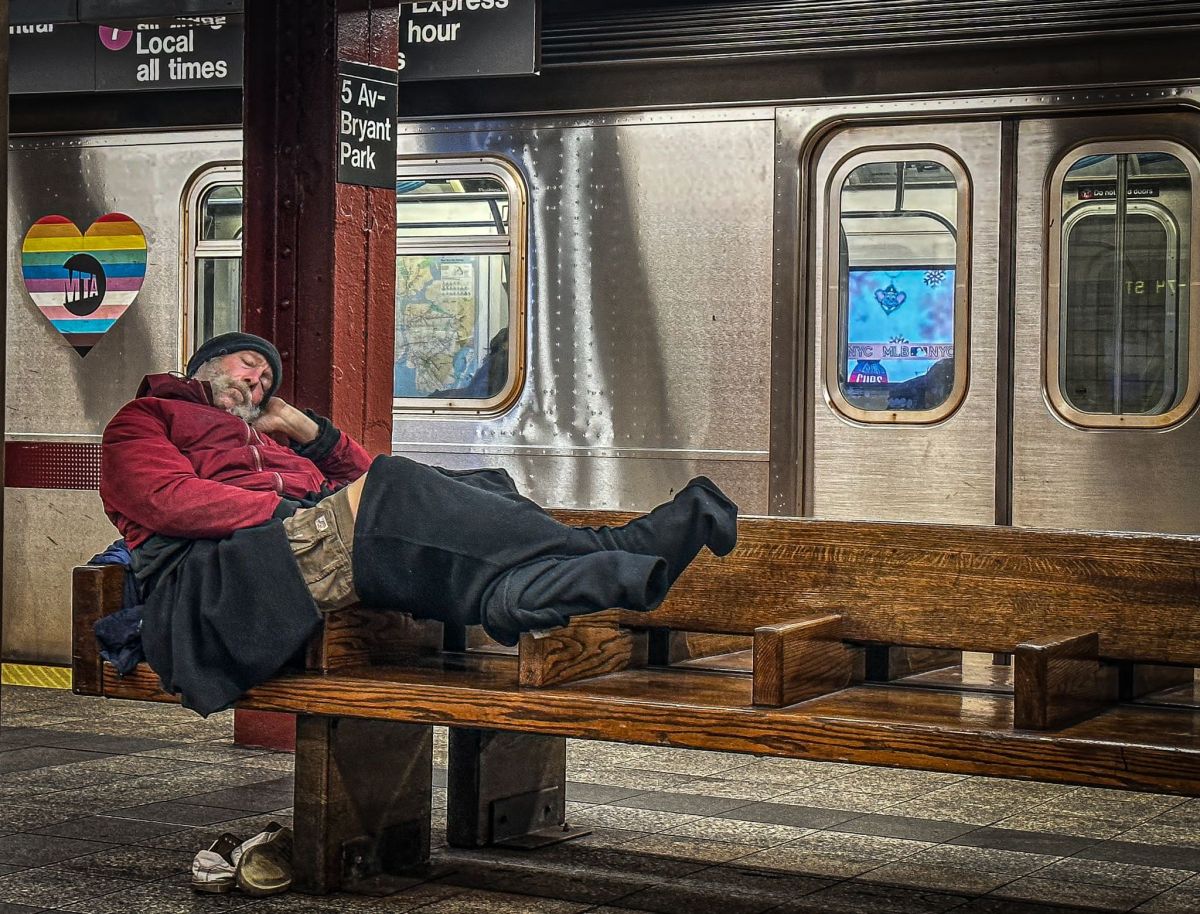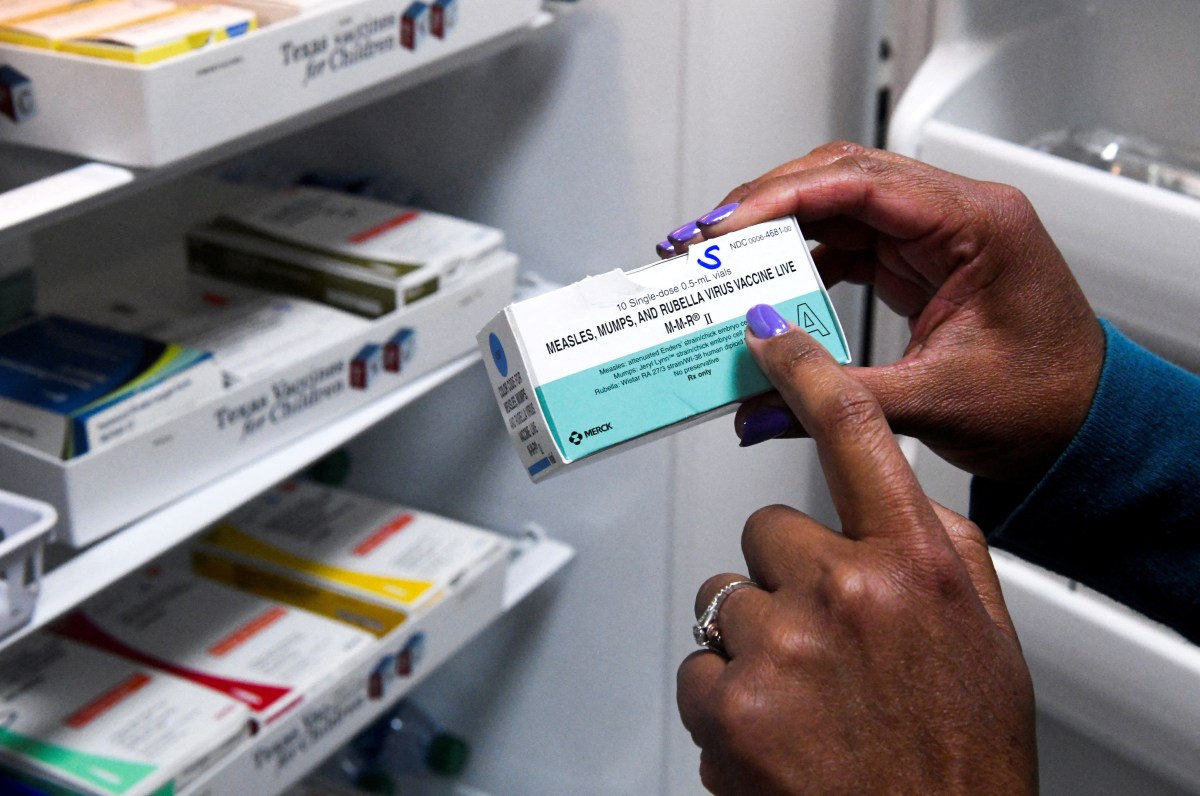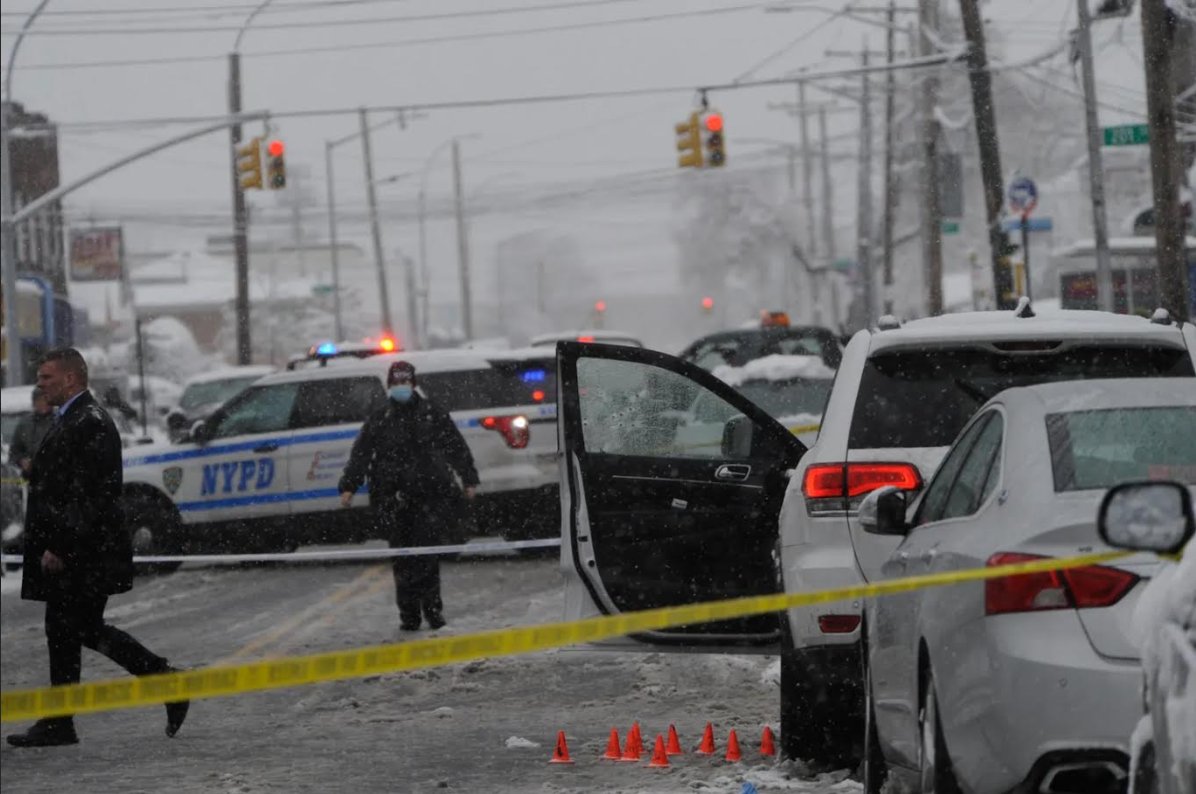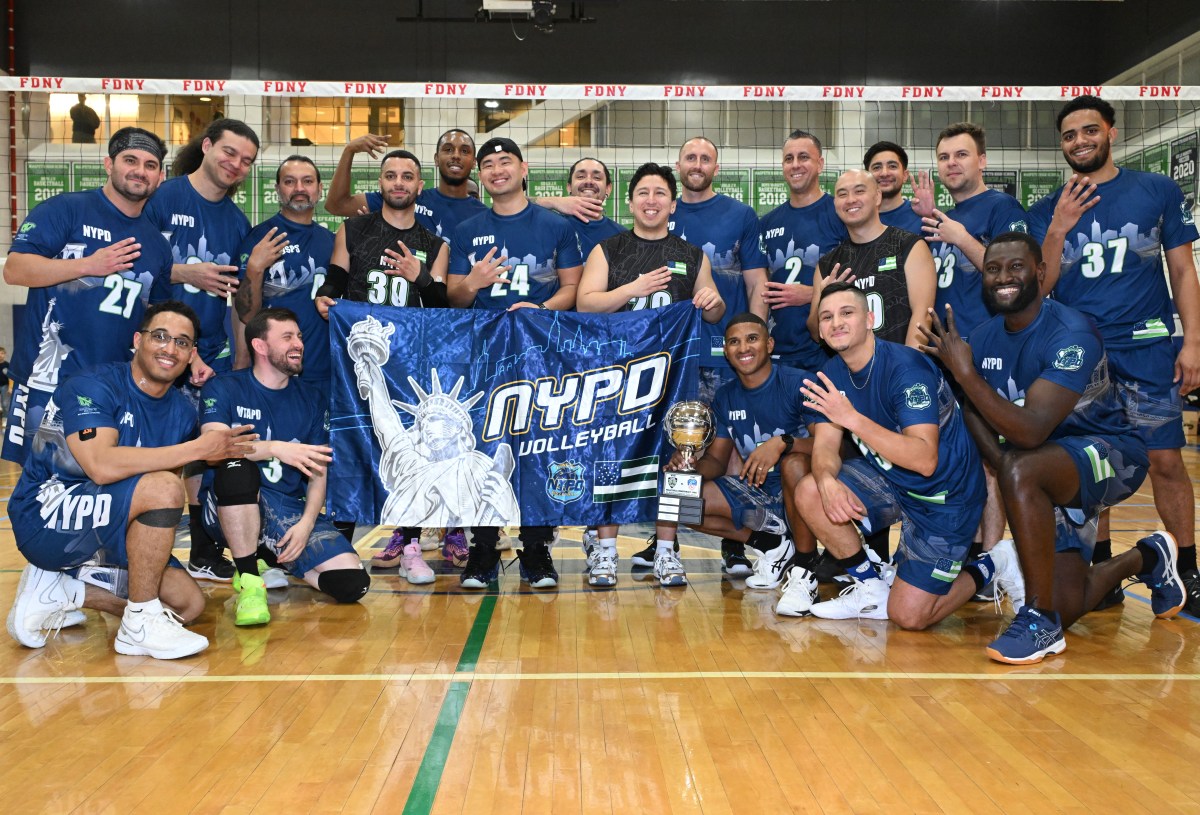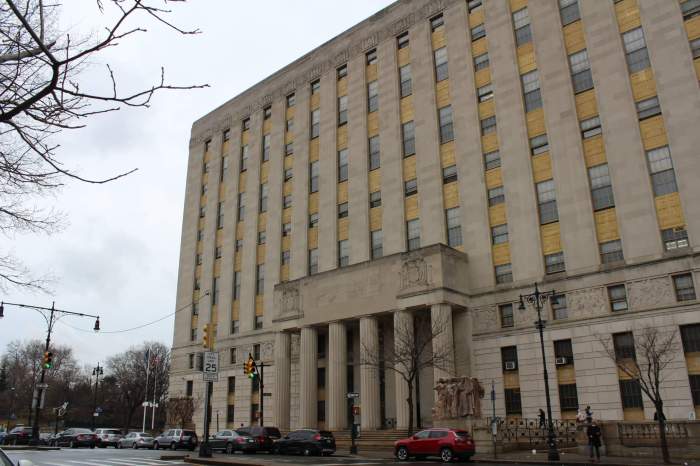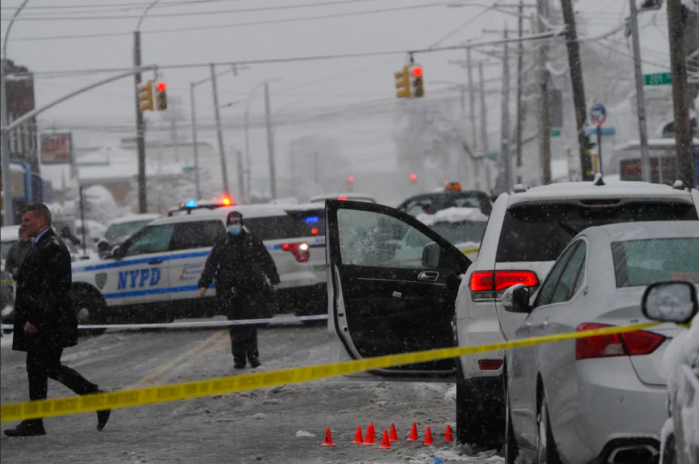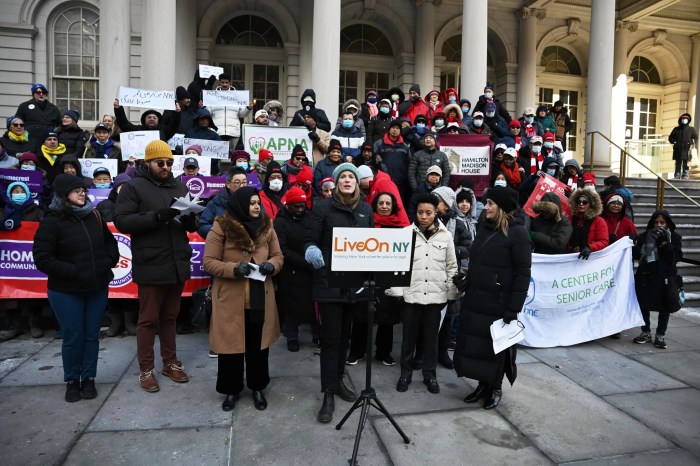One year since launching a controversial program to involuntarily hospitalize homeless people with severe mental illness, Mayor Eric Adams is hailing the initiative as a success — saying that 54 of the 100 most in-need New Yorkers have been moved into stable housing or medical centers.
The city keeps a running list of around 100 unhoused New Yorkers who suffer from the most serious mental illnesses, which keep them from seeking or accepting help, and the Adams Administration has targeted those individuals using heavy-handed means in an effort to clean up the streets.
Because that group accounts for a disproportionate share of interactions with police and social workers, the city maintains its running list in an effort to handle them in a more-permanent manner — including using some contentious methods.
When cops or social workers encounter individuals known to have severe mental illness, the public officials can involuntarily hospitalize them against their will, regardless of whether a crime has been committed.
Once in custody, individuals are turned over to medical professionals for any necessary treatment, and then pushed into the city’s shelter system, the mayor said Wednesday.
“For too long, there has been a gray area where policy, law, and accountability have been unclear, and this has allowed people in desperate need to slip through the cracks,” Adams said. “We can do much more to help those among us in a severe mental health crisis, even when they are unable to recognize their own needs.”
Since last year, when Adams has opted to use the tactic, 54 of the list of 100 people have been taken off the street and placed into medical care or specialized housing, according to Adams.
“One year ago, we made a commitment to New Yorkers that the days of ignoring the mental health crisis playing out on our streets were over,” Hizzoner said. “I’m proud that a year into this effort, we have made progress helping and housing a significant number of those most in need of care and support.”
Preventing needless death
The list, which is managed by the city’s Coordinated Behavioral Health Task Force, is not made public, though is shared between relevant agencies, such as the NYPD and the Department of Homeless Services. Of the 54 people diverted off the streets this year, 14 are currently hospitalized, and 40 others have been moved into some form of housing, a City Hall spokesperson said.
Notably, prior to his death, Jordan Neely had been named on the city’s list of 100.
Neely, a mentally ill homeless man, was killed by Marine veteran Daniel Penny earlier this year after he began erratically shouting aboard a Manhattan F train last May — sparking a widespread conversation about the city’s treatment of people with mental disorders.
Adams’ involuntary hospitalization policy is meant to get individuals like Neely off the streets and subways, and force them into treatment before they become involved in dangerous situations.
“Over the last several years, Jordan interacted with many city agencies, and community based organizations and providers,” Adams said following Neely’s death. “He had various encounters with the criminal justice system and was provided services to help him live safely in the community. Those efforts were not enough.”
Unlike Neely’s case, the city is aiming to proactively take well-known homeless individuals with mental issues off the streets before situations have a chance to escalate.
Allowing the forced treatment upon the mentally ill has already led to more-substantial results, as the 54 individuals shepherded into treatment this year marks a 145 percent increase over the prior year.
A controversial tactic
Involuntary hospitalizing people is a controversial tactic, though, as opponents argue the measure is a violation of an individual’s civil liberties.
“Forcing vulnerable people into treatment was an old, failed strategy,” said ACLU lawyer Donna Lieberman. “Despite the Mayor’s victory lap, a policy that criminalizes New Yorkers experiencing mental health challenges and homelessness is not helpful.”
Opponents of Adams’ involuntary hospitalization plan attempted to halt the idea in federal court, claiming it robs people of due process, but a U.S. District Court Judge denied their motions last December, and allowed Adams’ Administration to employ the tactic.
Still, civil rights activists like Lieberman have blasted the concept, claiming it gives unchecked authority to the government, and could potentially harm minorities in a disproportionate manner.
“As with many of the Mayor’s policies involving people who are unhoused and facing mental health challenges, this program has lacked transparency, data collection, or public reporting from the jump,” Lieberman said. “The Administration offered no data on its implementation, including whether people of color are being disproportionately targeted.”



